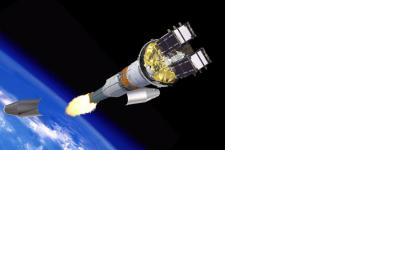Last Friday, 27 March 2015, the European Space Agency's (ESA) seventh and eight Galileo satellite were sent in orbit. They lifted off at 21:46 GMT from Europe’s Spaceport in French Guiana on top of a Souyuz rocket. According to ESA, the mission went as planned and the satellites are already in testing phase.
“The deployment of the Galileo constellation is restarting with this successful launch,” said Jean-Jacques Dordain, Director General of ESA. “The tests in orbit of satellites 5 and 6 have demonstrated the quality and performance of the satellites, and the production of the following ones is well on track. Good news for Galileo.”
Galileo, the global navigation satellite system (GNSS), is currently being created by the European Union and the European Space Agency. It aims to provide a European high-precision positioning and timing system under civil control, independent from the Russian GLONASS and the US-American GPS systems. Galileo will consist of 30 satellites and their ground infrastructure and is expected to be all set up in 2020. Four more satellites are scheduled for launch this year.

